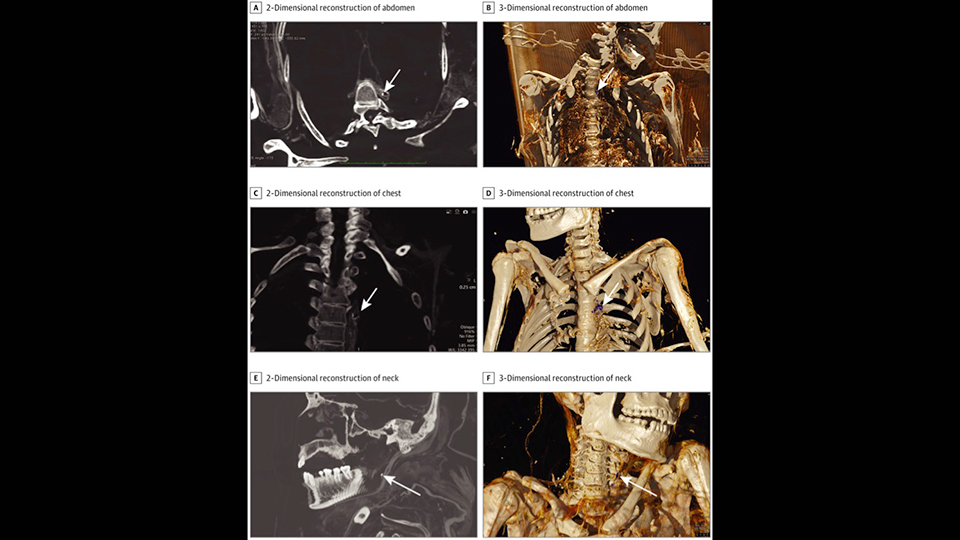
Scientists have discovered that hardening arteries is not linked to a modern diet.
Scientists in Boston have found evidence of atherosclerosis - the build-up of fats, cholesterol, and other substances in and on the artery walls- of 16th century Inuit people. Tests showed they ate "fish, birds, marine mammals and caribou," suggesting other factors besides a modern diet full of saturated fats and cholesterol contribute to cardiovascular disease.
HORUS Study Group researchers studied the mummies of four Inuit adults and one infant who lived in Greenland around 500 years ago. They found signs of plaque buildup in the arteries of three of them.
It was previously believed that a diet high in Omega-3 fatty acids would help prevent arteries from hardening.
The scientists published their findings in the American Medical Association's JAMA Network Open digital platform.
The new findings were consistent with a 2013 study the group published in The Lancet.
Their earlier study analyzed CT scans (whole-body computed tomography) of 137 mummies from four geographical regions, dating back to around 4000 BCE. The scans showed "definite or probable atherosclerosis" in 47 (34%) of the mummies.
"Although commonly assumed to be a modern disease, the presence of atherosclerosis in premodern human beings raises the possibility of a more basic predisposition to the disease," they wrote.
Data from the five Inuit mummies in Boston did not provide clear evidence that ω-3 fatty acids protect against cardiovascular disease. In the new study, the HORUS Group scientists cited environmental smoke from indoor fires as a possible contributory factor in atherosclerosis.